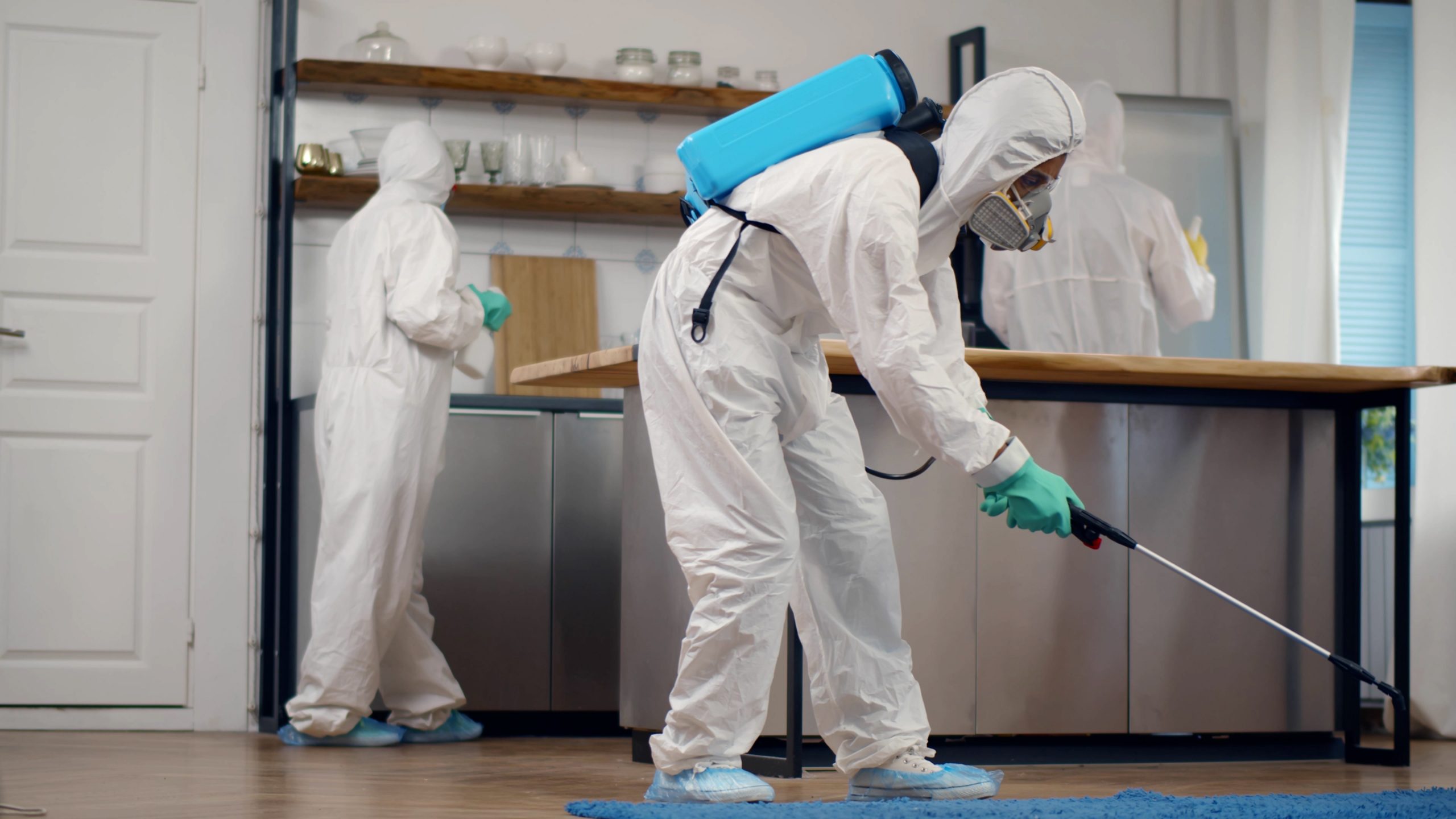Guaranteeing Your Convenience and Security: Orem Pest Control Specialists
Guaranteeing Your Convenience and Security: Orem Pest Control Specialists
Blog Article
Discovering the Various Kinds of Pest Control Techniques and Their Applications
Pest control is a critical facet of keeping a risk-free and healthy and balanced environment, whether it be in residential, commercial, or farming settings. Different methods have been created and improved throughout the years to efficiently minimize and take care of parasite infestations. From chemical methods that target specific insects to biological methods that harness all-natural predators, the world of bug control is diverse and vast. Understanding the different sorts of parasite control methods and their applications is necessary for carrying out one of the most appropriate and lasting options. Let's check out the ins and outs of these methods and exactly how they can be effectively made use of to deal with pest-related challenges.
Chemical Insect Control Strategies
Chemical parasite control strategies are commonly utilized in agriculture and pest administration to properly get rid of or regulate pest invasions. These techniques involve the use of chemical substances, such as pesticides, herbicides, and pesticides, to decrease or remove parasite populations that present a risk to plants, animals, or human health.
While chemical bug control methods can be very effective in handling bug populaces, they also increase concerns concerning possible ecological and health risks. It is essential to adhere to safety and security guidelines, utilize incorporated pest management methods, and take into consideration different methods to reduce the adverse influences of chemical pest control techniques.
Biological Insect Control Approaches
 Biological pest control approaches make use of living organisms to minimize and handle insect populations in a sustainable and eco friendly way. This method entails presenting natural predators, bloodsuckers, or microorganisms to control insects without the requirement for synthetic chemicals. One usual technique is the release of ladybugs to battle aphids in gardens, as ladybugs are all-natural killers of these damaging pests. An additional instance is the use of Bacillus thuringiensis (Bt), a germs that produces contaminants deadly to certain insect larvae, to regulate mosquitoes and caterpillars.
Biological pest control approaches make use of living organisms to minimize and handle insect populations in a sustainable and eco friendly way. This method entails presenting natural predators, bloodsuckers, or microorganisms to control insects without the requirement for synthetic chemicals. One usual technique is the release of ladybugs to battle aphids in gardens, as ladybugs are all-natural killers of these damaging pests. An additional instance is the use of Bacillus thuringiensis (Bt), a germs that produces contaminants deadly to certain insect larvae, to regulate mosquitoes and caterpillars. 
Biological bug control methods use numerous benefits over chemical methods. They are usually more secure for the environment, as they do not leave dangerous deposits or contribute to contamination. Furthermore, these approaches are often a lot more targeted, influencing just the pest species without hurting valuable bugs or various other microorganisms. Moreover, biological control can be a lasting service, as the presented microorganisms can develop sustainable populations and offer continuous bug administration. Overall, biological parasite control approaches provide a effective and natural choice to standard chemical therapies, advertising a balanced ecological community and much healthier atmospheres.
Physical Bug Control Approaches
Using physical approaches to control parasites involves the use of non-chemical or mechanical means to mitigate and handle bug infestations successfully. One usual physical pest control method is the installment of internet, fencings, or displays to obstruct parasites from entering particular locations.
An additional physical strategy is making use of catches, such as breeze catches for rodents or pheromone traps for insects. These traps objective to capture insects without posturing any kind of threat to human beings or the setting. In addition, physical control approaches can consist of techniques like handpicking pests off plants, using vacuum cleaner tools to get rid of pests, or utilizing warmth therapies to get rid of bed pests and various other bugs in ravaged locations.
Integrated Pest Administration Approaches
Implementing a holistic strategy to pest management, Integrated Parasite Administration (IPM) methods aim to combine numerous effective methods to manage and avoid bug invasions while lessening environmental influence and ensuring lasting insect control practices. IPM includes the integration of numerous control techniques such as biological control, social methods, mechanical control, and the careful use chemicals.

Additionally, IPM stresses the importance of tracking and evaluating pest populaces to identify the most proper click site control strategies. By executing IPM methods, insect control initiatives come to be more targeted and effective, minimizing the threats related to excessive chemical usage and advertising lasting pest management services.
Natural and Organic Insect Control Options

One popular natural parasite control technique is neem oil, originated from the seeds of the neem tree, which functions as a repellent and disrupts the growth and growth of insects. Diatomaceous earth, a natural silica-based powder, is an additional effective organic bug control option that works by dehydrating bugs upon call. By incorporating natural and all-natural insect control choices right into parasite management approaches, individuals can successfully regulate parasites while reducing injury to the setting and promoting sustainable practices.
Final Thought
To conclude, different pest control techniques such as chemical, biological, physical, integrated bug monitoring, and all-natural alternatives are offered for effectively managing pest infestations. Each method has its own advantages and applications depending upon the kind of parasite and the setting. By recognizing the various kinds of bug control methods and their applications, individuals can make enlightened decisions on the most proper strategy to manage bugs and shield their building.
Chemical parasite control strategies are extensively utilized in agriculture and bug administration to successfully remove or manage pest infestations - Orem Pest Control. Recommended Site All-natural bug control approaches include using biological control representatives, such as killers or parasites, to manage pest populaces. By integrating natural and natural parasite control alternatives into pest monitoring methods, individuals can effectively regulate pests while decreasing damage to the environment and advertising sustainable practices
In final thought, numerous pest control techniques such as chemical, biological, physical, incorporated page insect management, and all-natural choices are offered for efficiently taking care of insect infestations. By recognizing the different kinds of pest control strategies and their applications, individuals can make enlightened decisions on the most proper approach to manage parasites and secure their building.
Report this page